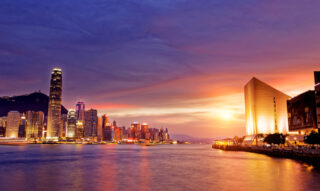An American Company organised a promotion campaign with the slogan “Win a Milano Week-end!” – using an illustration of the Eiffel Tower. It was a major blow for the Italians, who have their own national attractions to be proud of. Also, “latte” is the Italian word for milk, so if you order a latte in Italy, especially outside touristic areas, you may end up with a glass of milk.
At Today Translations, our network of corporate and business experts in both Italy and the UK can help you expand your ventures in the Italian market.
* Today Translations is now Guildhawk, click here to contact Rita.
Why invest in Italy?
Italy is among the seven most industrialised nations in the world, with a highly developed production industry.
- It’s economy is among the broadest in the world encompassing almost every type of industry, with a particular focus on cars, electronics, fashion products and machinery. Raw materials, meanwhile, are usually imported.
- Italy’s agricultural sector is also prime component of its economy. In fact, it’s the world’s seventh most dominant exporter of agricultural products, the principle products being wine, olive oil, wheat, milk, fruit and vegetables.
- Aside from engineering and fashion, its other prevalent economic sector is tourism
- Italy’s economy is dominated by only a handful of large businesses (some of which are state-owned), while much of the economy prospers thanks to the 3 million+ small to medium-sized enterprises, most of which are owned by a family or partnership.
- Investment opportunities are encouraged by incentives on behalf of the government, as well as regional and provincial authorities, particularly in the south of the country, where industry is still lacking in comparison with the north.
- Foreign investors are also granted the same incentives as locals, such as subsidised loans, cash grants and tax credit.
Need help to localize content, find out how Unlocking Global Markets: A Guide to Localization Strategy
Italian Business Culture
Italian business culture is a mix of tradition, family and modernity. Personal relationships, trust and loyalty are the pillars of a successful business relationship in Italy. In some other cultures business and personal life are separate, in Italy business is an extension of personal relationships.
Building a good rapport with your Italian business partners is not just good but necessary. This means taking the time to get to know your counterparts, understand their values and show genuine interest in their lives.
By building these personal connections you lay the foundation for a successful and long lasting business relationship.
Business Structure and Hierarchy in Italy
Italian businesses are hierarchical with power at the top. But this doesn’t mean lower level employees are ignored. On the contrary Italians value collaboration and are open to feedback from all levels of the organization. Employees are often encouraged to share their opinions and ideas, creating a dynamic and inclusive work environment.
Family businesses are common in Italy, with a strong sense of tradition and loyalty. These businesses often prioritise long term relationships and stability, which reflects the wider Italian society.
Business Mentality
Building close relationships is very important in Italian business culture. It would be good to find a well-connected person who can establish the right introductions on your behalf.
- Ensure that your Italian counterparts like and trust you. During business meetings in Italy it is common to express open disagreement and constructive conflict. Initial meetings are often informal opportunities for evaluating colleagues and establishing relationships, not making business decisions.
- For Italians, the eyes do eat, so ensure all hand-outs are aesthetically pleasing. Appearance is frequently considered more important than what is inside.
- A belief in status and hierarchy is essential in all aspects of Italian society. There is also tremendous respect for power and age.
- Occasionally, the decision-making process might be slow, in which case using pressure is not welcome.
- Large businesses usually work from 8.30 /9.00am until 6.00/6.30pm Monday to Friday with an hour or two for lunch.
- Try not to organise any meetings in August, on Catholic festivities and on other national days off.
Greetings
In introductions and departures, shake hands individually with everyone in a group. The American ‘group wave’ will not be sufficient. Also, always shake hands using your right hand and always from standing position.
- Taking time to study the business card of an Italian business associate shows respect and the value placed on the relationship.
- You will always be introduced to older people and women first and it’s a good idea to do the same when introducing yourself.
- It is polite to say “Buongiorno” (good morning) and “Buonasera” (good afternoon/evening).
- Italians won’t hesitate to greet people they know with a warm embrace.
- While expansive gestures are common among Italians, they won’t expect a foreigner to do the same. Understanding cultural nuances, such as warm greetings, eye contact, and attention to personal space, is essential when interacting with Italian business associates.
- You are expected to say “Signor(e)” (Mr.) or “Signora” (Mrs.), plus the surname, when introduced to Italian executives. Use last names and appropriate titles until specifically invited by your Italian host or colleagues to use their first names.
The Art of Conversation
Do not be surprised if during Italian business meetings your Italian colleagues speak simultaneously or interrupt one another. It is a common trait of the Italian communication style.
- Italian culture is a popular theme of conversation. Italians are open, curious and tolerant of others’ uniqueness and manners. They will tolerate lateness and sincere mistakes, but dislike arrogance and rudeness.
Country Facts:
- The official name of Italy is the Italian Republic.
- The official language is Italian.
- The capital city is Rome, also called “The Eternal City”.
- The population is almost 60 million people.
- Italian brands are associated with luxury. The top three global Italian brands are Ferrari, Gucci and Prada.
Business Meetings and Meals
Dress code is a priority amongst Italians. Your attire will be perceived as a reflection of your social standing and relative success, as well as your competence as an entrepreneur.
- Understanding Italian business etiquette can significantly enhance the effectiveness of a business trip. Familiarity with local customs and proper greetings can impact the success of business interactions during these trips.
- Punctuality is not a priority. Be prepared to wait a while before your Italian counterpart appears or lets you into the office. However, you are expected to be on time.
- Exchanging business cards is common and you should have yours translated into Italian on the reverse. Ensure that any advanced educational degrees and your full title are featured on both sides of your business card.
- Do not give a business gift until you receive one first; gifts showcasing your company’s logo should be avoided.
- Business might be conducted over long business lunches, which can last up to three hours and allow for personal interactions beyond just business discussions.
- Hospitality plays a key role in Italian business culture, and usually involves a restaurant dinner. Refusing an invitation of any kind is likely to be taken as an insult.
- For restaurants and taxis, a tip of 10% will be sufficient
Body language
- Eye contact should be direct. This is the way Italians show their interest.
- Don’t be surprised if your Italian counterparts stand much closer to you than you expect.
- Chewing gum, leaning and slouching are unacceptable in public.
- Italians are known for using the most body language of all European nations.
Business Networking in Italy
Networking is key in Italy and is done through social events, conferences and trade shows. Italians are social and love building relationships so these are great opportunities to meet new people and make connections.
When attending networking events be prepared to talk about your business and what you do as Italians will be very interested in that. Building a network of contacts will open doors to new opportunities in the Italian market.
Women in the Italian Workplace
Women are key in the Italian workplace although underrepresented in some industries and leadership roles. Italian women are hardworking and dedicated to their careers and are increasingly taking on leadership roles in business and politics.
Their presence is driving innovation and growth and their increasing participation in the workforce is shaping a more inclusive and diverse business environment in Italy.
Other fun facts
– The oldest olive tree is in Umbria and is reportedly over 1,700 years old.
– With almost 40 million visitors, Italy is the fourth most visited country in the world.
– Over 75% of Italy is mountainous or hilly.
– Italy owes much of its prosperity to thousands of small private family enterprises.
– When McDonald’s opened in 1986 in Rome, food purists outside the restaurant gave away free spaghetti to remind people of their culinary heritage.
– An estimated 3,000 euros are thrown into the Trevi Fountain each day. The money has been used to subsidise a supermarket for Rome’s needy.
Click here to get in touchCopyright Notice:
Third parties are allowed to use or reference information on this page for non-commercial use only if they acknowledge this website as the source by linking to it.
Read detailed Terms and Conditions on how to apply for commercial use.











